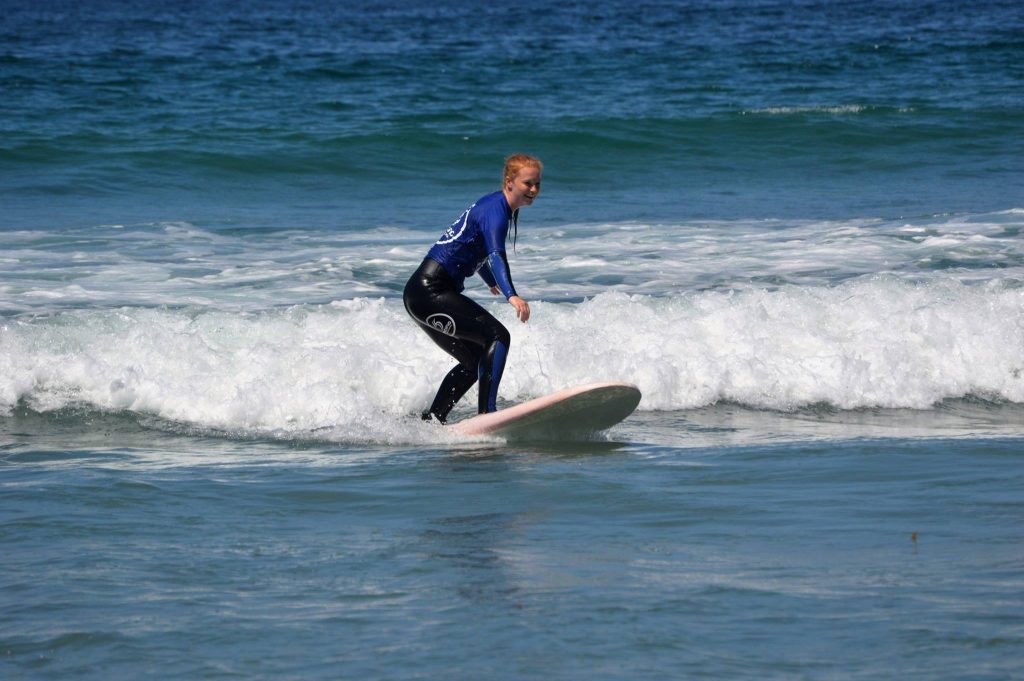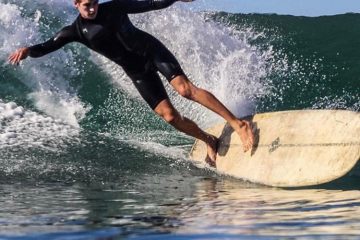Working for a Better Future
Emily Smith grew up in Minnesota. She was a senior in high school when her grandparents broke the news: She was going to California.
Smith’s grandparents set up a trip to the West Coast for her to tour colleges. One of the schools was University of California San Diego. One she got there, she couldn’t pass up the opportunity.
“I blew off the tour to get a surfing lesson,” she said.
After her trip, she fell in love with the ocean.
“There’s just amazing experiences you have in the ocean,” Smith said. She pointed to a time when her friends convinced her to get back in the water after she got out. “The sun was setting behind us and there were 30 dolphins swimming around us. I was like, well that doesn’t happen in a lake.”
Now a junior at the University of Southern California, Smith joined the surf team when she was a freshman.
When her parents came to visit, Smith took them to watch surfers in Malibu. There was a girl on the beach wearing a spring suit and holding a bright pink board. She stood out among the crowd and grabbed the attention of Smith’s father. When she paddled into the water with her board upside down, the perceptions only got worse.
“My dad was like, ‘What’s this girl going to do? She doesn’t even have her board upright.’ He was fixated on her to see if she could actually surf.”
Smith was all too familiar with the problem at hand.
Smith believes there is a significant contrast in how men and women are viewed in sports. She says men are usually portrayed as athletically superior and more knowledgeable. Smith said it’s no different in surfing.
“People have this perception of female surfers that they’re beach babes and they’re super hot and bleach blonde hair and super skinny and all these things,” she said. “In reality, if you look at the female members of our surf club, none of them look like that, which I think is a super cool thing.”

Smith points out that not only do stigmas about sexes in the sport exist, but they also have direct consequences. Up until this past year, men were paid more than women in the World Surf League. When the league announced there would be equal pay, Smith says some people were outraged at the change.
“I was like, Why are people mad about women getting equal pay?”
However, Smith said she believes the situation is getting better as more women feel empowered to stand up for themselves and each other.
“Women try and combat [the problem] for each other. I’m not afraid to tell boys when they’re being dumb.”
This empowerment has led to innovation for the betterment of the sport. Smith noted that there are now companies, such as Roxy, that specifically try to promote women in action sports.
As Smith thinks about her future, she said she wants to work for one of those companies.
“Working for Roxy would be a super cool gig,” she said. “I want to share the stories of girl surfers and share pictures of girls doing super dope stuff to show how cool they are and to show that they can do whatever they want to do.”
The future Smith envisions is one of equality, where girls don’t get pushed off waves by guys. One where women aren’t sexualized and are instead respected for their athletic talent. It’s a future that is possible, and one that women like Smith will undoubtedly continue to fight for.


